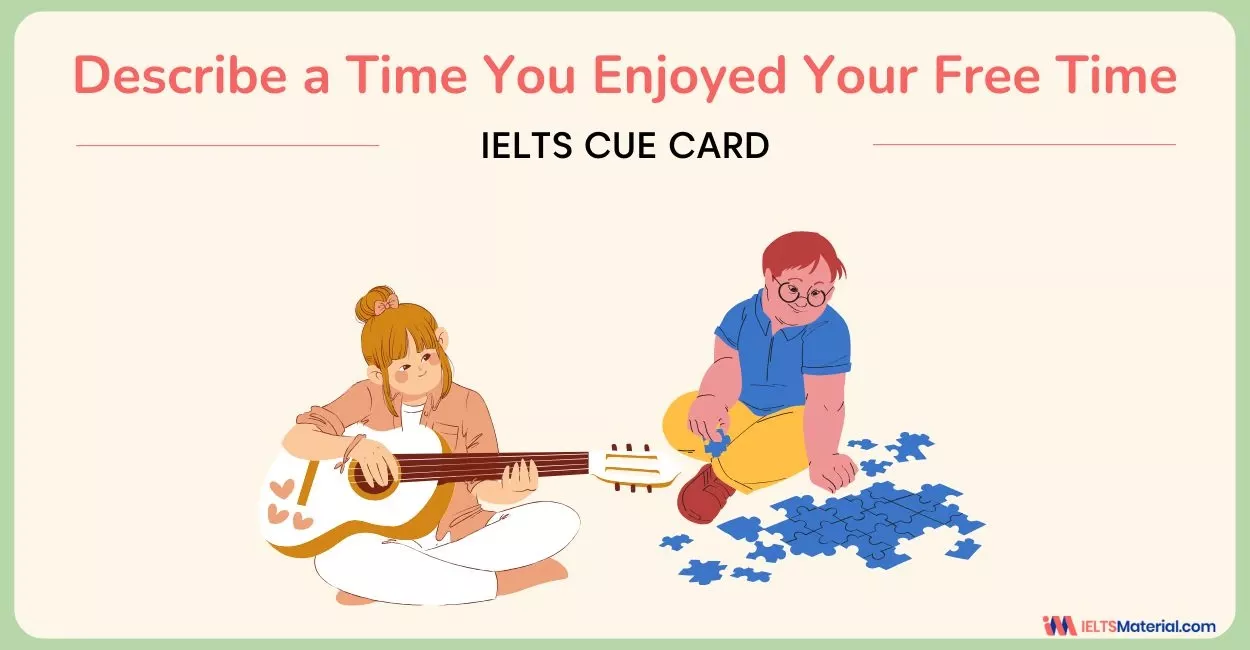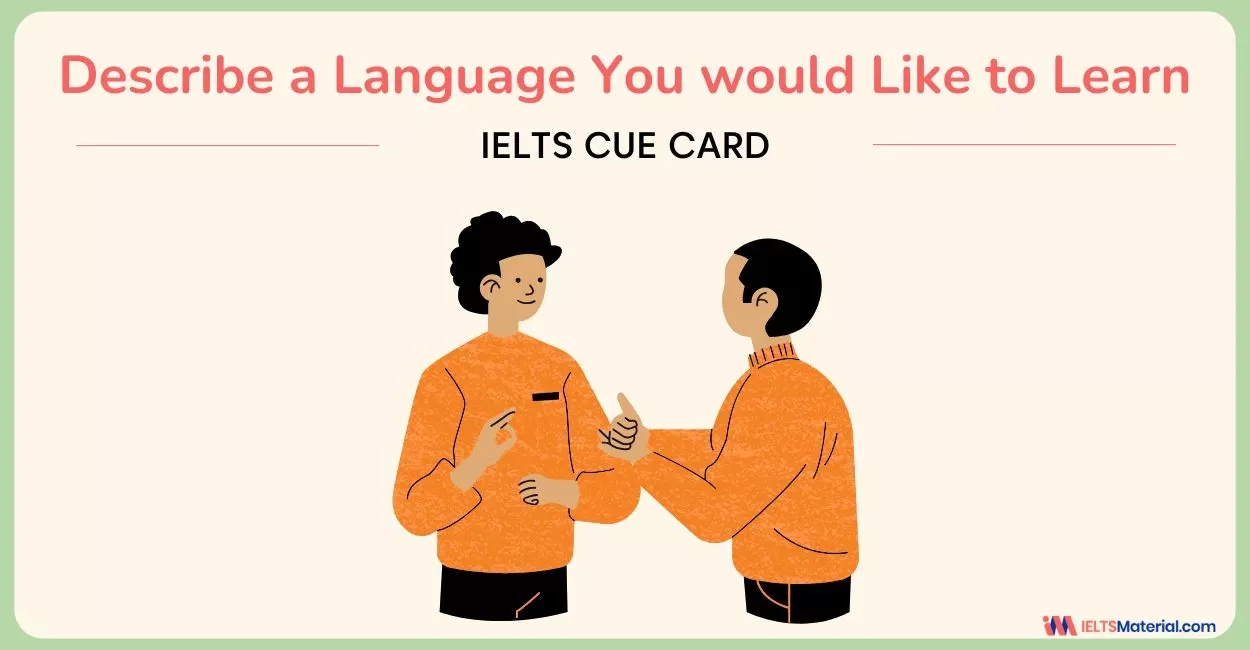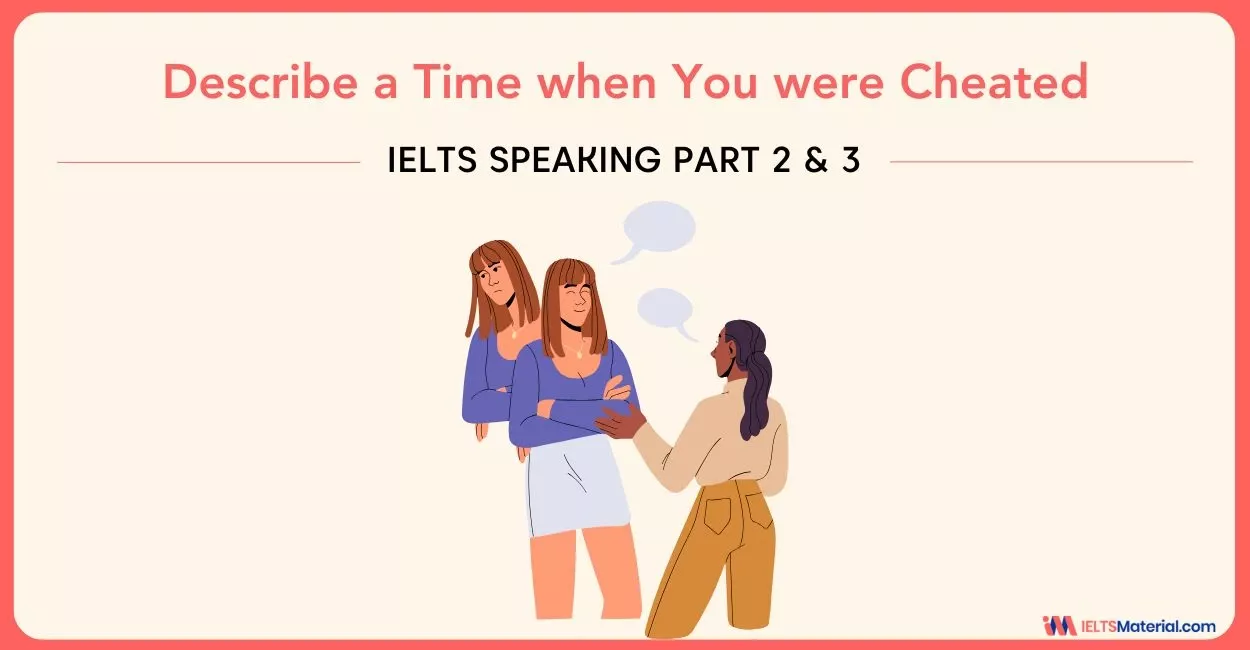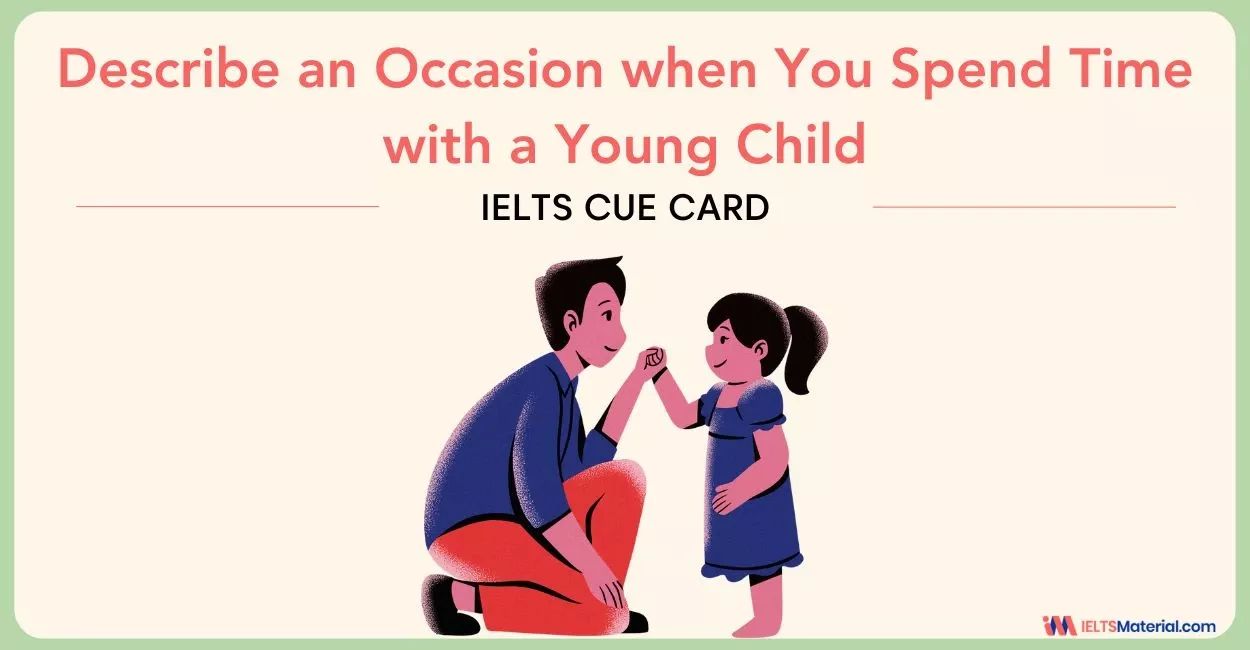Describe an Interesting Tradition in Your Country – IELTS Cue Card Sample Answers
8 min read
Updated On
-
Copy link
Practice to improve your speaking skills with the IELTS cue card topic, ‘Describe an Interesting Tradition in Your Country’. Achieve your desired IELTS Speaking band score of 8+ with our sample answers for Parts 2 & 3 and vocabulary resources.
Table of Contents
- Describe an Interesting Tradition in Your Country IELTS Speaking Part 2 Question & Sample Answers
- Describe an Interesting Tradition in Your Country - IELTS Cue Card Sample Answer 1
- Describe an Interesting Tradition in Your Country - IELTS Cue Card Sample Answer 2
- Vocabulary for Describe an Interesting Tradition in Your Country IELTS Cue Card
- Describe an Interesting Tradition in Your Country – IELTS Cue Card Part 3 Follow-Up Questions
- Describe an Interesting Tradition in Your Country IELTS Speaking Part 3 – Vocabulary

Limited-Time Offer : Access a FREE 10-Day IELTS Study Plan!
In every culture, traditions and customs hold significant importance, offering insight into a society’s values, history, and way of life. The IELTS cue card, Describe an Interesting Tradition in Your Country, from the list of IELTS cue cards for topic – your country, provides you an opportunity to share such a unique tradition of your country in a fluent and well-structured way.
Therefore, in this blog, we have provided 3 sample answers to prepare for the speaking module of the IELTS exam. We have also included useful vocabulary and phrases that can help you perform well in the IELTS Speaking test.
Describe an Interesting Tradition in Your Country IELTS Speaking Part 2 Question & Sample Answers
In the IELTS Speaking Part 2, you may be asked to describe a tradition from your country. This task allows you to express not only your knowledge of cultural practices but also your personal connection to them.
Describe an interesting tradition in your country.
You should say
- What is it?
- Who takes part in it?
- What activities are there?
- And explain how you feel about it?
Describe an Interesting Tradition in Your Country - IELTS Cue Card Sample Answer 1
- What is it?
Traditions are an integral part of the culture and the way of life of certain communities. India is a nation known for its vast diversity of people belonging to different faiths, castes and social classes. However, it is our customs and traditions that unify us as a nation, regardless of where we come from. Traditions are an inherent part of the Indian heritage, and such rituals are deep-rooted in our lifestyle. One such conventional tradition that is practised by nearly every Indian household is the Raksha Bandhan.
- Who takes part in it?
Raksha Bandhan is a ceremony where siblings, especially brothers and sisters, come together and celebrate their wonderful bond. This tradition has been followed for centuries in our country and is one of the most important traditions of Indian culture. Although it is mostly celebrated in north India and has similar celebrations in other parts of the country like Bhai Dooj, at present, it has become one of those customs that transcends religious stereotypes and is celebrated by people of all faiths.
- What activities are there?
Typically, Raksha Bandhan involves the auspicious ceremony of tying a sacred piece of thread, also known as a Rakhi, on the hand of your loved ones. This rite is most common among a brother and her sister, where the sister ties the Rakhi on her brother’s hand as a symbol of love, trust and preservation. That being said, this tradition is also performed among other siblings and close friends in many cases.
- And explain how you feel about it?
I believe that such a tradition is a testament to the wonders of our enchanting culture. Moreover, since Rakhsha Bandhan is a celebration of sacred bonds and relationships, it is a truly awe-inspiring event that I love to be a part of every year.
Book a FREE Demo to practise for IELTS speaking with experts!
Describe an Interesting Tradition in Your Country - IELTS Cue Card Sample Answer 2
-
What is it?
One of the most interesting traditions in Vietnam is Tet Nguyen Dan, which is the Vietnamese Lunar New Year. This tradition is celebrated to mark the beginning of the lunar calendar year and usually falls between late January and early February. Tet is similar to the Chinese New Year. However, it carries its own unique cultural significance for the Vietnamese people.
-
Who takes part in it?
Tet is celebrated by almost every Vietnamese person, regardless of where they live, and it brings together families from all over the country and even those living abroad. It is not just a time for festivities but also a deeply meaningful tradition that emphasizes family, renewal, and honoring ancestors.
-
What activities are there?
The tradition spans several days, with the preparation phase starting weeks in advance. One of the most iconic activities during Tet is the cleaning and decorating of homes. The house is adorned with beautiful peach blossoms, kumquat trees, and red lanterns, which are believed to attract good luck and prosperity. On the eve of Tet, families come together for a feast, where a variety of traditional foods such as banh chung (square sticky rice cake), pickled onions, and boiled chicken are prepared. Another important activity is paying respects to ancestors by setting up a table with offerings to honor them, a practice that connects the living with their heritage. On the first day of the new year, many people visit friends and relatives, exchanging New Year’s greetings like “Chuc Mung Nam Moi” (Happy New Year), and give red envelopes with money (called li xi) to children and younger members of the family, symbolizing blessings for a prosperous year ahead.
-
And explain how you feel about it?
Personally, I feel very connected to Tet because it represents a time to reflect on the past year, celebrate achievements, and most importantly, honor family. Even though Tet can be quite busy and crowded, especially in the days leading up to the new year, I cherish the time I spend with my family and the nostalgia of the traditions we follow. I love how Tet brings people closer and how every detail from the food to the customs helps strengthen our cultural identity.
Related IELTS Cue Cards
- Describe a Leisure Activity (A Game, Hobby, or Sport) That is Popular in your Country – IELTS Cue Card
- Describe a Foreign Country You Have Never Been To - IELTS Cue Card Sample Answers
- Describe a Famous Celebrity from Your Country - IELTS Cue Card
- Describe A Popular Musical Instrument In Your Country – IELTS Cue Card
- Describe a Story Popular in Your Country - IELTS Cue Card
Vocabulary for Describe an Interesting Tradition in Your Country IELTS Cue Card
Have a look at the latest IELTS speaking vocabulary to boost your score from the sample answers above to improve your score. You can also use this vocabulary in your ‘Describe an Interesting Tradition in Your Country’ answer.
|
Word |
Meaning |
Example Sentence |
|---|---|---|
|
Integral |
necessary to make a whole complete; essential or fundamental |
The engine is an integral part of an automobile. |
|
Inherent |
existing in something as a permanent, essential, or characteristic attribute |
Ignorance of the poor is an inherent part of present-day society. |
|
Conventional |
based on or in accordance with what is generally done or believe |
Rita was part of a conventional household and upbringing. |
|
Transcends |
surpasses |
He was able to transcend everyone in his class in academics. |
|
Rite |
a social custom, practice, or conventional act |
The Johnson family never missed their annual Christmas rite. |
|
Festivities |
the parties, meals, and other social activities with which people celebrate a special occasion |
Join the festivities at the New Year's Eve party. |
|
Iconic |
very famous or popular, especially being considered to represent particular opinions or a particular time |
The Eiffel Tower is an iconic symbol of Paris. |
|
Adorned |
to add something decorative to a person or thing |
The bride's hair was adorned with white flowers. |
|
Prosperity |
the state of being successful and having a lot of money |
The country's future prosperity depends on its education system. |
|
Prosperous |
successful, usually by earning a lot of money |
In a prosperous country like this, no one should go hungry. |
|
Nostalgia |
a feeling of pleasure and also slight sadness when you think about things that happened in the past |
Hearing that song again filled him with nostalgia. |
Don't miss out on our top-rated Speaking book! Buy Now!
Describe an Interesting Tradition in Your Country – IELTS Cue Card Part 3 Follow-Up Questions
After the cue card task is complete for the speaking module, the examiner will move to IELTS Speaking Part 3 without wasting time. It is mostly about abstract, opinion-based questions related to Part 2's topic. So, to aid your preparation for this section, we have included sample Part 3 questions related to the cue card, ‘Describe an Interesting Tradition in Your Country’, answers, and vocabulary.
-
What is the importance of traditional festivals?
Traditional festivals are a fundamental part of the culture and heritage of a community or region. These festivals present an opportunity to people to celebrate their customs extravagantly. During such events, not only do people from a single community come together and celebrate, but individuals from other cultures also become involved. Thus, these festivals are perfect occasions where people enjoy themselves in unity.
-
What’s the difference between festivals now and in the past?
Festivals have always been a part of our culture. That being said, the fashion in which they are celebrated has changed over the years. In the past, festivals meant the practice of sacred rituals, visiting and spending time with family and friends. Presently, festivals are considered to be holidays where people visit exorbitant places and flaunt on social media.
-
Do you think western festivals like Christmas are replacing traditional festivals in your country?
I believe that the celebration of festivals should not be typecasted to a particular community. That being said, the excessive idolization of western culture has diverted people’s attention from traditional festivals. As a result, people, especially youngsters, are more knowledgeable about western festivals like Christmas and Halloween than they are about our cultural events. Such a dynamic is becoming more and more common with the present generation.
-
Do you think it is wrong for children not to celebrate traditional festivals?
One of the most recurrent reasons young children avoid celebrating traditional festivals is their lack of knowledge about them. Presently, children tend to spend most of their time on the internet and less time with their elders learning about our heritage. In my opinion, children should be involved in cultural activities and traditional celebrations to improve their understanding of our culture.
-
Do you think teenagers should learn about traditions?
Yes, it is critical that teenagers learn about traditions and culture. Teenagers and youngsters are the future of their generation. Therefore, if they are not well-informed about their heritage, it has a detrimental effect on their identity and their social values. Teenagers should also learn about their traditions as it brings about a feeling of reverence for their customs and traditions.
Describe an Interesting Tradition in Your Country IELTS Speaking Part 3 – Vocabulary
Check out some vocabulary words that you can use for answering the Part 3 questions for ‘Describe an Interesting Tradition in Your Country’ and related topics.
|
Word |
Meaning |
Example Sentence |
|---|---|---|
|
Extravagantly |
With a lack of restraint in spending money or using resources. |
Denise celebrated her work anniversary rather extravagantly. |
|
Flaunt |
Display (something) ostentatiously, especially in order to provoke envy or admiration or to show defiance. |
The princess never failed to flaunt her expensive attire. |
|
Typecasted |
Represent or regard (a person or their role) as fitting a particular stereotype. |
African-Americans were often typecast in Hollywood films as villains. |
|
Idolization |
Admire, revere, or love greatly or excessively. |
The idolization of violence under any circumstances is incorrect. |
|
Reverence |
Deep respect for someone or something. |
The pupils always exhibited great reverence for their teacher. |
To sum up, preparing for IELTS Speaking Part 2 with such latest IELTS speaking cue card topics with sample answers allows you to tap into your imagination, express your interests confidently, and expand your vocabulary, especially when describing people, places, and cultures. So, if you are aiming for a higher IELTS band score, remember to stay descriptive, coherent, and enthusiastic in your responses.
Useful Links:
- 151 IELTS Multilevel Speaking Part 2 & 3 Topics with Model Answers
- How to Prepare a Cue Card for IELTS Speaking?
- Common Mistakes to Avoid in IELTS Speaking Test
- 31 High-scoring Formulas to Answer Ielts Speaking Questions Ebook
- IELTS Speaking Vocabulary - 10 Academic Words that will Help you Score IELTS Band 9 (Part 1)

Start Preparing for IELTS: Get Your 10-Day Study Plan Today!
Explore other Speaking Part 2 Topics

Kasturika Samanta

Kasturika Samanta

Kasturika Samanta
Recent Articles

Haniya Yashfeen

Kasturika Samanta

Nehasri Ravishenbagam






Post your Comments
1 Comment